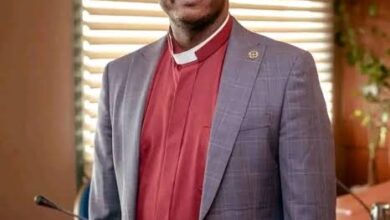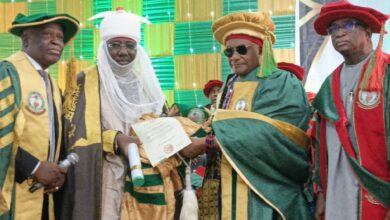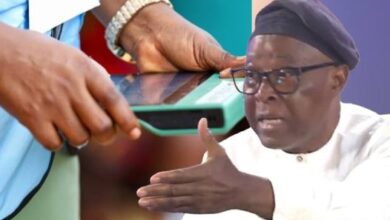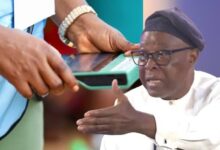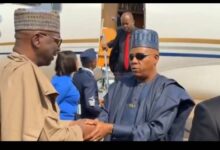Nigeria mulls new education model to scrap 9-3-4 for 12-4 system
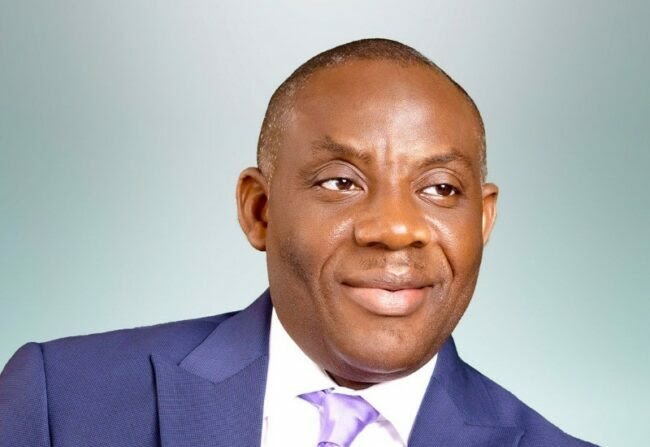
By KEMI KASUMU and OUR REPORTER, Abuja
If the prayers of Dr. Tunji Alausa, Nigeria’s Minister of Education, for a new system of education desired for the Nigerian child come to fruition soon, it means that the 9-3-4 education model operating in the country till the moment will be scrapped and replaced with a new model to be known as 12-4 education system.
By this re-engineering, all things being equal, Junior Secondary School (JSS) that is three of the nine years basic level, and Senior Secondary School (SSS) that is the three years before going for four years at the tertiary level, will give way automatically.
The idea to rejig the system is currently being considered to make the nation’s education system align with current realities.
Dr Tunji Alausa gave this explanation on Thursday February 6, 2025, while debunking report by a newspaper in the country (not The DEFENDER) saying the Federal Government had scrapped the existing system of 9-3-4 for 12-4.
He, however, admitted that the central government was thinking about it, adding that to have such arrangement implemented some processes are involved, which include that it must pass through the National Council on Education (NCE).
The Minister was responding to a media enquiry to confirm or otherwise dismiss the newspaper report that said government had announced the scrapping of all JSS and SSS levels of education in the country and introduced a compulsory 12-year uninterrupted basic education model after which the Nigerian child will be qualified to seek admission into the tertiary education level.
Dr. Tunji Alausa had been quoted to have said at the 2025 Extraordinary Meeting of the National Council on Education (NCE) in Abuja that introduction of the 12-4 education model effectively marked the abolition of the 6-3-3-4 system and its replacement with the new model.
“Many developed nations have implemented similar systems where basic education spans 12 years, ensuring that students acquire foundational knowledge before specialising at tertiary levels. This reform also aligns Nigeria’s education system with international standards, fostering better educational outcomes and global competitiveness,” Alausa had reportedly said.
But the Minister noted in an exclusive media interview that, while it is true that a change in the system was being considered, discussions were still ongoing and implementation may not begin until the last quarter of 2025.
“We haven’t even got to the implementation phase. We went to the Council of State meeting, that this is what we need to do. The National Council of Education needs to meet, which is the highest body (level).
“So we are saying let’s think about this. In October we will meet again. We’re going to do a lot of stakeholders’ meetings, and say, do we want to adopt a 12-year mandatory education, as opposed to nine years that we have now? In other countries, it’s 12 years,” the minister argued.
According to him, looking back to 30 years ago, young people who did year three are better than those doing three extra years now, reason the system should be overhauled.
“That means we’re just training people that have no clue, that need training… We have nine years now, but we’re proposing to increase it to 12 years of compulsory education,” he stated.
By transitioning from 9-3-4 to the 12-4 system of education, Nigeria will align with global standards in preparing students for better tertiary education, the minister had argued earlier.
“A 12-year basic education model will ensure a continuous, uninterrupted curriculum, promoting better standardisation and fostering quality assurance in the education system.
“It will also guarantee that students receive a more comprehensive and continuous learning experience, improve educational outcomes, and contribute to a more educated populace that drives Nigeria’s economic development,” he maintained.
He also highlighted the challenge in Nigeria, where talented, bright students are being disenfranchised from pursuing tertiary education due to their age.
“In any society, it is crucial to standardise the education of highly functional and exceptionally gifted students. We are now preventing these students, after finishing secondary education at the age of 16, from attending university until they are 18. This delays their development and harms their futures.
“These students are capable and brave. If we leave them idle, we risk exacerbating mental health issues,” he warned during the event he attended earlier.
The DEFENDER reports that that Nigeria’s education system has passed through three transitions between the 1960s and now. Until 1983 when the Federal Government announced introduction of the 6-3-3-4 education model, the country had used the 6-5-2-3 model
The 6-3-3-4 system was developed to promote national unity and socio-economic development in Nigeria. The system was designed to produce graduates who could use their hands, head, and heart. The 6-3-3-4 system was structured into four stages: Primary education: Six years; Junior secondary education: Three years; Senior secondary education: Three years and then Tertiary education: At least four years.
The ideas for the 6-3-3-4 system were formulated when Wenike Briggs, the Federal Commissioner for Education, announced its introduction in Nigeria on September 8, 1969. The model was introduced during an even of the International Literacy Day.
The 6-3-3-4 education model was the result of a curriculum conference held in 1969. The conference was organized in response to dissatisfaction with the existing education system.
The conference produced a report that was presented to the Federal Government, which led to the adoption of the 6-3-3-4 system, which many years after – during the ongoing Fourth Republic of 1999 to date – was later replaced by the 9-3-4 system, also known as the Universal Basic Education (UBE).



